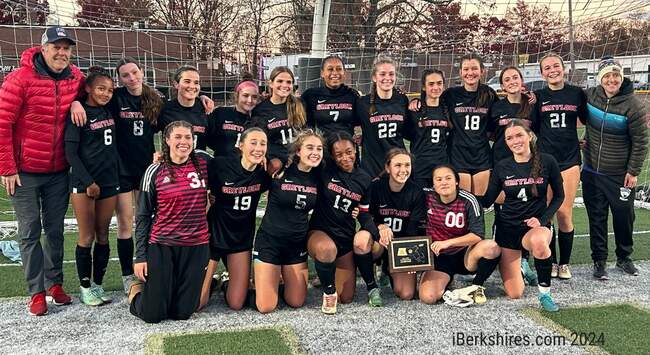
Storm's Icy Grip Leaves Thousands Without Power
 |
National Grid was reporting that some half-million homes and businesses in New England and New York were without power; Western Mass. Electric was reporting about 8,000 without power at 6 p.m., primarily in Becket and Otis.
Florida Mountain was particularly hard hit, with one resident saying it "looked like a war zone."
More than a million electric customers from New York to Maine were out of power. Entergy Corp. told Bloomberg that ISO New England power grid operators had asked it to lower the Vermont Yankee nuclear reactor capacity because "massive power outages" threated the grid's stability.
Gov. Deval Patrick declared a state of emergency early this morning and nonessential state workers in executive state offices in Western Mass. were given the day off.
The National Weather Service had forecast up to an inch of ice as two powerfullow pressure systems worked their way northeast. Higher-than-expected temperatures kept the precipitation to rain — 2 inches or more — in most of the lower elevations of the Berkshires, but the heavy rains turned to sleet and ice in the hilltowns.
The town of Florida was hit badly by the ice storm and parts of Route 2 were closed several times because of downed trees and power lines. A MassHighway worker described the conditions as "constantly changing" at mid-morning.
Gabriel Abbott Memorial School was closed and the Senior Center opened as an emergency shelter.
| Storm Leaves 1.25M without Power |
"There's a stretch from the Senior Center to firehouse, about 2 1/2 miles ... well, for close to two miles, the power lines are down," he said.
About seven people were taking advantage of the warmth and light at the Senior Center, the town's emergency evacuation center. Burdick said the center would be open all night and that residents had been told not to expect the power back for another 48 hours.
There were reports of road closings on Massachusetts Routes 116, 9, 23 and 20; Vermont Route 9 was closed because of downed trees and is not expected to reopen until Saturday morning.
In addition to Florida, the hardest-hit towns appear to be Otis and Becket, where thousands are without power. Power also was out in portions of Pittsfield, Richmond, Dalton and other communities. There were scattered reports of flooded basements.
The power outage and heavy rain forced Jiminy Peak Ski Resort to close for most of the day. Power was restored earlier this afternoon and snowmaking is expected to begin tonight.
The storm produced almost 2 inches of rain as measured at Pittsfield Municipal Airport and more than 2 at North Adams' Harriman and West Airport. Temperatures are expected to drop below freezing tonight with sunny skies and temperatures in the teens on Saturday.
Information from iBerkshires' media partner Berkshire News Network was used in this report.















